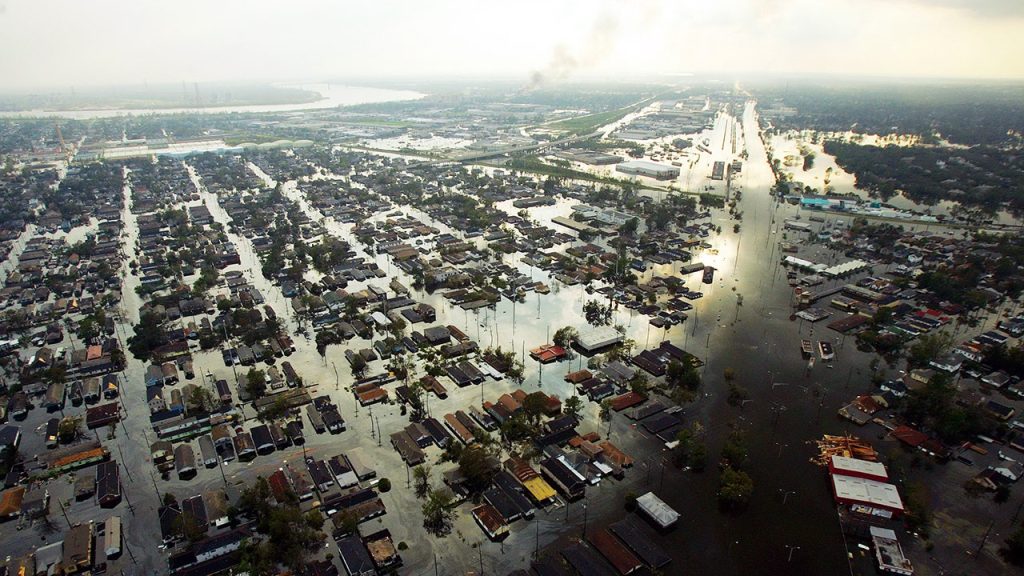Hurricane Katrina made landfall near New Orleans, Louisiana on August 29, 2005, causing massive destruction as a Category 3 hurricane with sustained winds of 145 mph. The storm affected areas near New Orleans and Mobile, Alabama, causing extensive damage along the Gulf Coast. The aftermath of the storm included over 50 failures of the levees and flood walls around New Orleans, leading to widespread flooding. Despite an evacuation order issued by Mayor Ray Nagin, many residents remained in their homes and sought shelter in the Superdome, leading to complaints about the emergency management response.
The failure of the levees caused floodwaters to run through many New Orleans neighborhoods, leaving about 80% of the city submerged. Thousands of people were stranded in the Superdome without adequate food or hygiene, while reports emerged of looting and crimes as residents awaited rescue from their flooded homes. Helicopters were used to rescue people from rooftops in the flooded Ninth Ward, as local agencies struggled to respond to the desperate situation. The federal government was criticized for stalling assistance in the days following the disaster, leaving thousands of evacuees in need of shelter, food, and water.
In the aftermath of Katrina, shortages of food, water, and shelter became critical issues for the displaced residents of New Orleans. Tens of thousands sought shelter in the Red Cross shelter at the Houston Astrodome, while others remained in the city without access to basic necessities. It was not until September 2 that an effective military presence was established in the city, and National Guard troops mobilized to distribute aid. The evacuation of hurricane victims continued, and crews began to rebuild the breached levees, with the U.S. Army Corps of Engineers pumping out the last of the floodwaters on October 11, 2005.
The death toll from Hurricane Katrina is the fourth highest of any hurricane in U.S. history, with over 2,000 people believed to have died in Louisiana alone. Drowning, injury and trauma, and heart conditions were the major causes of death attributable to the storm. Hurricane Katrina also caused over $160 billion in damage and led to a significant population decrease in New Orleans in the years following the disaster. Despite the challenges faced in response to the storm, dozens of countries contributed funds and supplies, and efforts were made to assist with the cleanup and rebuilding process in the Gulf Coast region.


